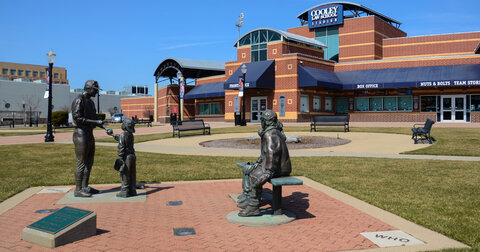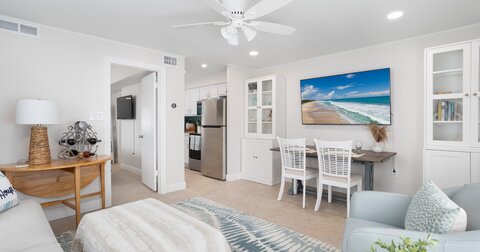Michigan sports catch $25 million in 2025 budget
Frankenmuth facility scores $10M subsidy
Michigan sports organizations will receive $25 million from taxpayers via the 2025 state budget.
Out of the $83 billion budget, roughly $1 billion will be for pork projects that were not vetted by committee hearings or other processes, but instead are selected by individual lawmakers. The projects could fund friends’ private businesses, failing companies, or a sports complex.
The largest budget in state history will give $10 million to the Frankenmuth Youth Sports Complex, $3 million to the Berston Field House in Flint, $3 million to the West Michigan Sports Complex and $2 million to a boxing group in Detroit.
The budget prioritized sports complexes over essential projects, said Rep. Gina Johnsen, R-Lake Odessa.
“Rather than focusing on statewide necessities like infrastructure, safety, education, and other essential services, Democrats are continuing their politically motivated trend of funding nonessential projects like these in clearly targeted areas of the state,” Johnsen told Michigan Capitol Confidential. “I’m disappointed to see the way tax dollars were prioritized for sports complexes ahead of things that really make a difference in the lives of families burdened by continued inflation.”
Other allocations include $1.5 million for Jimmy John’s Field in Utica, $1.5 million for a winter sports complex in Muskegon, $1 million for the Lansing Lugnuts’ baseball stadium, $1 million for a ski jump in Dickinson County and $1 million for a midnight golf program in Wayne County.
Some earmarks help the community while others subsidize stadiums, said John Mozena, president of the Center for Economic Accountability.
“There are the ones for things like the youth sports programs, like the Detroit Police Athletic League and the Downtown Boxing Gym in Detroit or the Berston Field House in Flint, where the point is to keep kids off the streets and help them learn life skills and connect them to positive role models,” Mozena told CapCon in an email.
These projects aren’t vetted, and they get special treatment, according to Mozena.
“You can certainly argue that it’s not the state government’s job to be funding things like that or that the legislative earmark process is the wrong way to decide which of those programs across the state should get that kind of special treatment, but in the broader scheme of a disastrous state budget they’re fairly benign,” Mozena wrote. “I’d rank them alongside things like funding parks and recreation departments.”
But taxpayers shouldn’t fund projects that benefit for-profit businesses, such as stadiums used by minor league baseball teams, Mozena said.
“The earmarks that really stand out for me are the stadium subsidies for minor league baseball stadiums in Lansing and Utica,” Mozena said. “Those teams are for-profit businesses and they, not Michigan’s taxpayers, should be paying for their stadiums.”
Lawmakers will return from vacation to Lansing this week.
Michigan Capitol Confidential is the news source produced by the Mackinac Center for Public Policy. Michigan Capitol Confidential reports with a free-market news perspective.


.jpg) Four Michigan orchestras get $2.34 million in 2025 budget
Four Michigan orchestras get $2.34 million in 2025 budget
 Michigan gives $9.1 million to favored faith-based organizations
Michigan gives $9.1 million to favored faith-based organizations
 Minority-owned businesses get $10 million in 2025 budget
Minority-owned businesses get $10 million in 2025 budget

 Park Township short-term rental owners seek grandfathered properties
Park Township short-term rental owners seek grandfathered properties
 Park Township enforces ban on short-term rentals
Park Township enforces ban on short-term rentals
 Conservation officers may soon need warrants to enter private land
Conservation officers may soon need warrants to enter private land